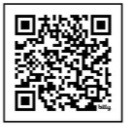Mapping changes in world’s water, NASA scientists find ‘human fingerprint’ in many areas
Ian James, The Desert Sun Published 10:06 a.m. PT May 16, 2018 | Updated 6:07 p.m. PT May 16, 2018
Using measurements from Earth-observing satellites, NASA scientists have tracked changes in water supplies worldwide and they’ve found that in many places humans are dramatically altering the global water map.
The team of researchers analyzed 14 years of data from NASA’s twin GRACE satellites and studied regions that have seen large increases or decreases in the total amount of freshwater, including water in lakes and rivers and water stored in underground aquifers, soil, snow and ice.
The scientists examined precipitation trends and other data to determine the most likely causes of these huge losses and gains of water around the world. Their findings in a new study reveal that of the 34 “hotspots” of water change in places from California to China, the trends in about two-thirds of those areas may be linked to climate change or human activities, such as excessive groundwater pumping in farming regions.
“The human fingerprint is all over changing freshwater availability. We see it in large-scale overuse of groundwater. We see it as a driver of climate change,” said Jay Famiglietti, a co-author of the research and senior water scientist at NASA’s Jet Propulsion Laboratory. “The study shows that humans have really drastically altered the global water landscape in a very profound way.”
In eight of the 34 regions, the researchers said the trends reflect “possible” or “probable” impacts of climate change, including losses of ice sheets in Greenland and Antarctica, precipitation increases in the high latitudes of Eurasia and North America, the retreat of Alaska’s glaciers and melting ice fields in Patagonia.
They ascribed changes in 12 regions to natural variability, including a progression from a dry period to a wet period in the northern Great Plains, a drought in eastern Brazil and wetter periods in the Amazon and tropical West Africa.

